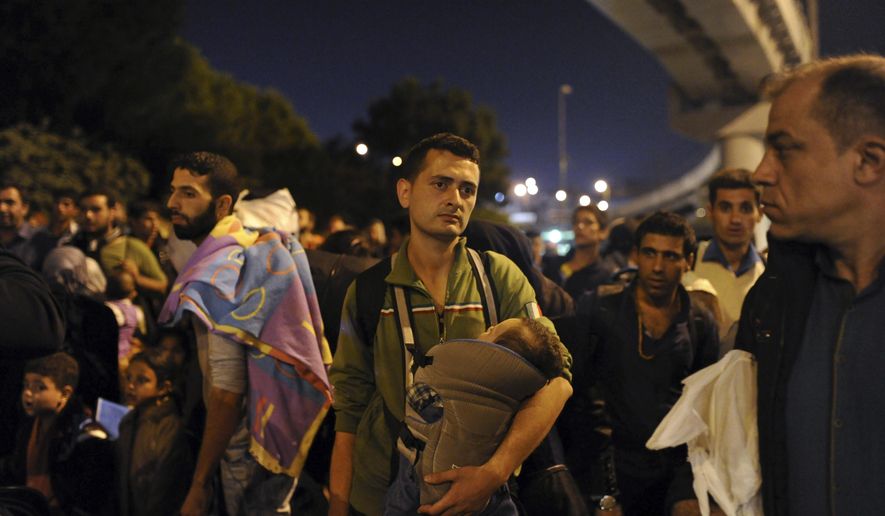Bulgaria and Slovakia have become the latest countries to follow the Trump administration’s lead and say they won’t join an ambitious United Nations compact on global migration that was all set for a triumphant signing ceremony in Morocco next week.
Governments in both nations on Wednesday rejected the U.N. accord on grounds it promotes what they say is an international approach to migration that runs counter to sovereign policies their lawmakers already put in place.
They join Austria, Hungary, the Czech Republic, Israel, Poland, Switzerland and Australia as among the countries that have either officially dropped support for the deal, or vowed not to attend the two-day meeting in Marrakech, Morocco starting Dec. 10 to formally approve the compact.
“At this stage, the Bulgarian government believes that the decision not to join the Global Compact for Safe, Orderly and Regular Migration protects to the fullest extent the interests of the country and its citizens,” the populist, conservative government said in a statement Wednesday. In Slovakia, Prime Minister Peter Pellegrini reportedly said that his government plans to send its objections to the deal via diplomatic mail.
Last December, the Trump administration stood alone — the only U.N. member state out of 193 — in refusing to endorse the pact. U.S. officials argued that numerous provisions in the nonbinding accord were “inconsistent with U.S. immigration and refugee policies” under President Trump.
But since then, observers say, the global debate has intensified between pro-immigration globalists and those who argue for greater national sovereignty and local control of borders.
Analysts say the mounting disapproval of the pact by smaller central and Eastern European nations is in large part a negative reaction to the continent’s 2015 refugee crisis, Europe’s largest influx of people since the World War II. Many Eastern European capitals resented what they saw as a mandate from EU leaders to take in refugees from Syria, Afghanistan and other world hot spots that could swamp their own cultures and political traditions.
The skepticism has spread to Western Europe as well, where immigration-skeptic parties have made striking gains at the polls and even joined ruling coalitions in countries such as Italy and Austria. A debate in Belgium on whether to join the countries renouncing the U.N. migration agreement has sparked a crisis this week in the governing coalition.
Supporters say fears of the U.N. pact are overblown, and that the accord addresses an issue that, by definition, crosses national boundaries and calls for a multinational response. The aim, they say, is to make migration generally a more orderly and humane process and address the lack of direction and guidance that plagued recent refugee crises.
But the Trump administration’s once-lonely stance is finding a growing number of supporters in right-leaning, immigration-skeptic parties that fear their right to set their own policies of immigration and border security could come into question.
This week an opinion poll on the pact in the Netherlands found 41 percent opposing the U.N. accord to 34 percent in favor.
Last week in Italy, which has borne the brunt of migrants coming from the Middle East and Africa, Deputy Premier and Interior Minister Matteo Salvini, a sharp critic of increased immigration, pledged not to attend the Marrakech conference. Lawmakers in Rome are set to soon debate whether to sign the pact or not.
• Dan Boylan can be reached at dboylan@washingtontimes.com.




Please read our comment policy before commenting.